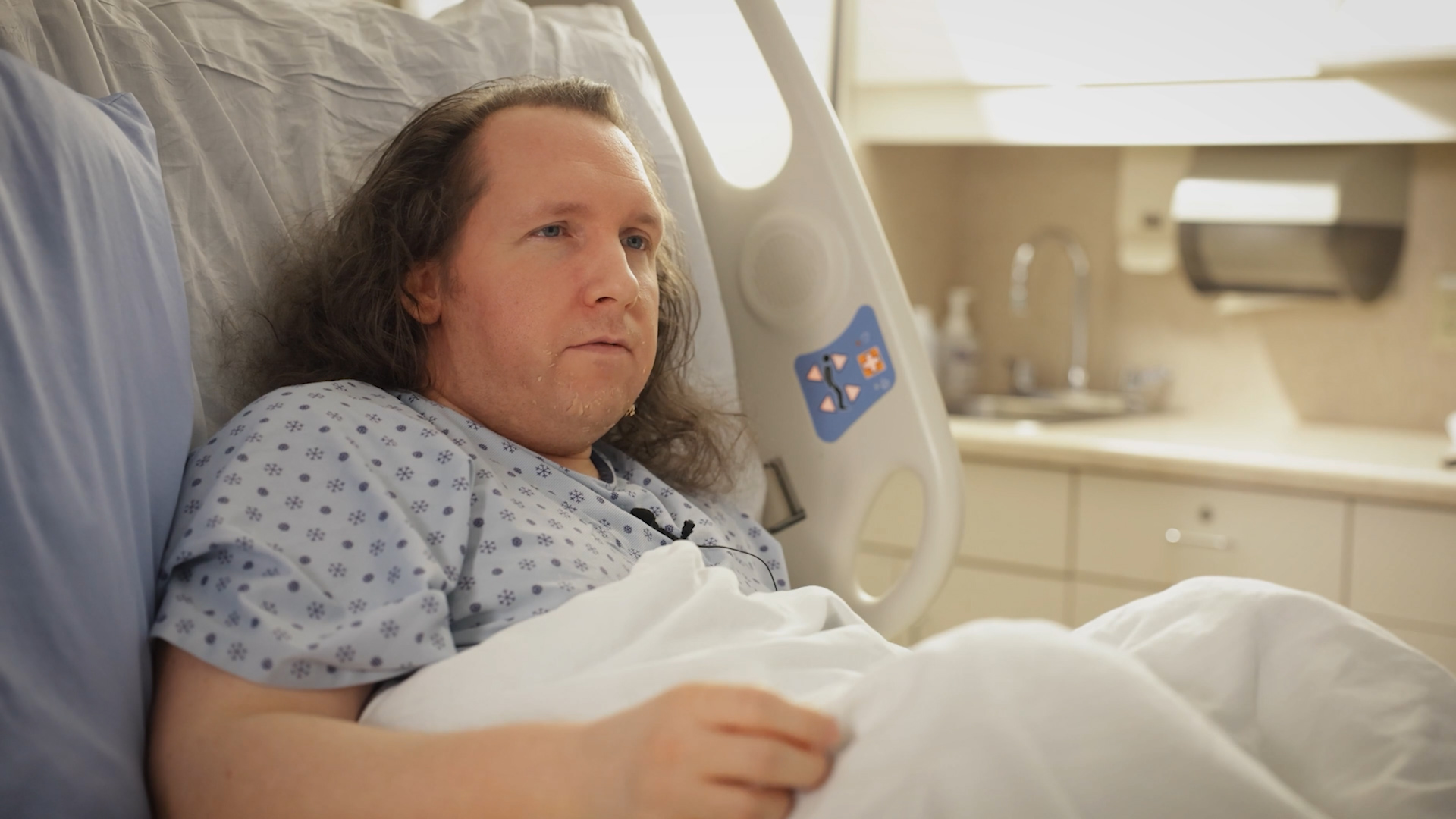I was born with spinocerebellar ataxia, a severe neurodegenerative disease, along with other disabilities. Despite these challenges, I have led an active life—earning two degrees, working as an e-business manager at the Royal Bank of Canada, and being recognized as one of the top 52 volunteers in Canada. I also dedicated time to my community through music, performing arts, sports, journalism, philanthropy, and writing. Additionally, I cared for my father, a Canadian WWII veteran, helping him live more than eight years beyond his cancer diagnosis.
Today, my condition has left me fully dependent on others for basic care. I can no longer walk, have limited mobility, and struggle with even simple tasks like swallowing. Despite investing in making my home accessible, Canada’s healthcare system has denied me the self-directed funding I need to hire personal attendants, leaving me without proper care. I have been trapped in the hospital for over eight years, fighting to gain access to the home care I need.
As Canada has expanded its assisted dying law, I have faced neglect, verbal abuse, and denial of essential care. I’ve been told my care needs are too much work, and my life has been devalued. Worse still, I have been approached and told by healthcare staff to consider opting for Medical Aid in Dying (MAiD). Instead of offering compassionate support to alleviate my suffering, it is suggested to me that I should end my life. I find this deeply hurtful.
There is no end in sight for my situation. I continue to fight for access to the home care I need to live, while authorities remain focused on blocking me from that care. I believe my experience is a canary in the coal mine – a warning of the abuses that occur under a system that pressures vulnerable individuals into seeing death as the only option. This is a concern I’d urge UK politicians to consider as they debate this issue. I believe that what has happened under Canada’s regime would occur in the UK if Kim Leadbeater’s Assisted Dying Bill becomes law.
Kim Leadbeater and her allies claim that her Bill has the strictest safeguards in the world. I’ve heard this claim before in my own country when the Canadian Government ratified its first Medical Assistance in Dying (MAiD) legislation, Bill C-14, in 2016. The fact is, Leadbeater’s bill doesn’t even address concrete protections against coercion into assisted dying, and it allows assisted dying to be raised with vulnerable persons. These concerns were highlighted during a November 12th, 2024, BBC Newsnight interview when Victoria Derbyshire politely questioned MP Christine Jardine about the bill’s safeguards.
Jardine, a named supporter of the bill, responded to concerns about coercion by saying that further safeguards would be secured later. And she suggested that the apparent sincerity of a patient would be enough to prove that no coercion is taking place. In response, Derbyshire pointed out that “doctors are not trained in coercive control”. Derbyshire also brought up the issue of Leadbeater’s Bill permitting a doctor to raise the subject of assisted dying with a patient. I found it troubling that Jardine did not appear to see any issue with this.
Based on the vague and ineffective language in Leadbeater’s bill, the solicitation, coercion, and pressure I’ve faced to undergo an assisted death in Canada would be seen under a UK law. Changing the law would expose disabled and vulnerable people in the UK to the same coercive tactics used by healthcare workers to push MAiD in Canada, and also in Oregon’s assisted suicide regime, which some people hold up as a model. In fact, in both Oregon and California, vulnerable individuals have faced pressure to end their lives.
Assisted dying regimes always expand over time, driven by constant pressure for others to have access to this “healthcare right”. When expansion occurs, society loses its incentive to address underlying issues, doctors lose their objectivity, and populations fall victim to the “Psychology of Authority”, where vulnerable individuals become increasingly compliant to authority figures, even when those figures may encourage harmful or unethical decisions.
The horrors unleashed upon the vulnerable are terrifying. It’s not just Canada that’s worrying. We see alarming trends in New Zealand, Belgium, the United States, and Switzerland, where safeguards are easily circumvented. These countries highlight the growing chaos in all jurisdictions where assisted dying has been legalised.
The safest thing the UK can do to protect its vulnerable citizens is to never introduce an assisted dying regime. Instead, the UK must focus on improving palliative care, bolster home care, reduce wait times, and introducing a “right to try” rather than a so-called “right to die.”

Roger Foley
Roger Foley is a Canadian man, 45, who suffers from several complex medical conditions including cerebellar ataxia, which is an incurable degenerative neurological disorder that renders him physically disabled, reduces his life expectancy, and leaves him permanently reliant on caregivers for food and medicine.

